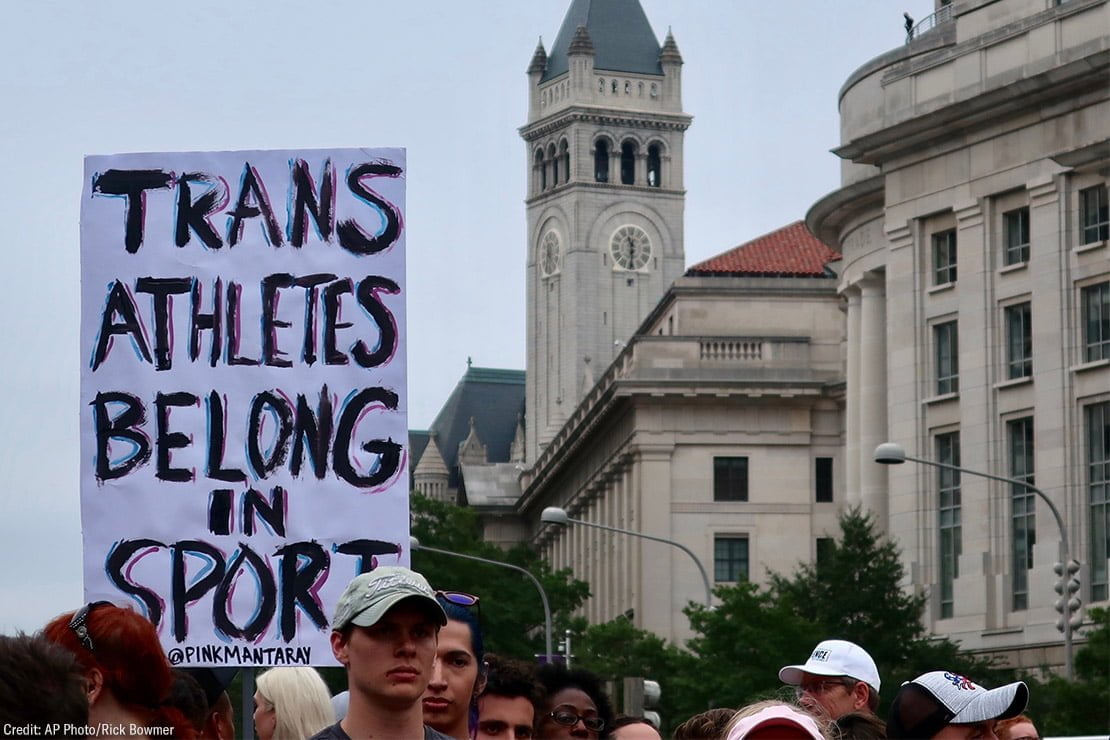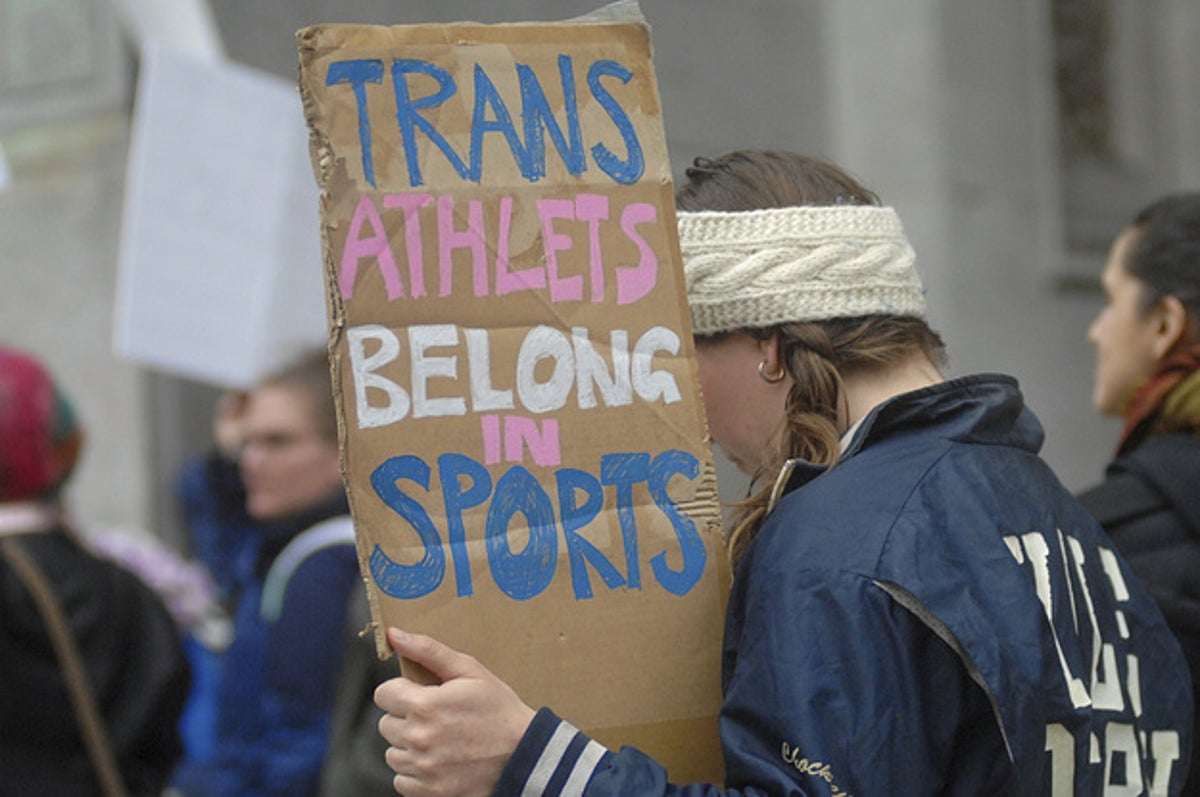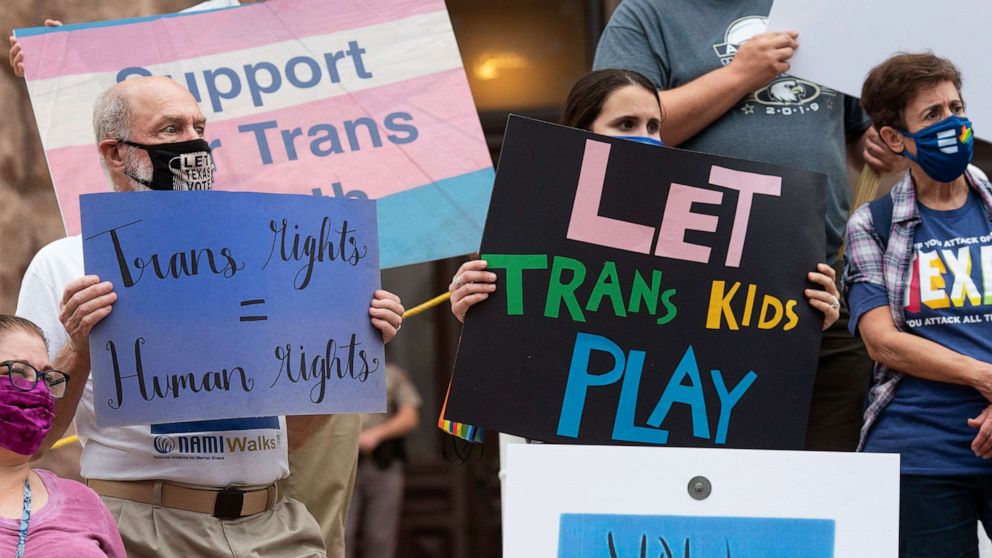A fair sport can only be played in a fair world. There is no equity when access, privilege and freedom are only placed with some. In a recent and controversial move, the International Cricket Council (ICC) has decided to ban transgender women from participating in international women’s cricket. The decision cites concerns related to competitive fairness, referring to potential advantages that transgender women might have over cisgender women. This ruling brings forth the fundamental arguments against trans individuals that have been leveraged on biology. And a larger question looms before us- should there be a body-based binary in sports?
In a recent and controversial move, the International Cricket Council (ICC) has decided to ban transgender women from participating in international women’s cricket.
The supporting argument states that certain physical advantages may persist even after hormonal treatments, potentially impacting the competitive balance. This standpoint insults the trans identity as the individual is identified by their assigned gender at birth. Thereafter hormonal therapy is scrutinised to measure how much of a woman or a man the individual is. This in many ways reinforces the existing stereotypes and misconceptions – not to mention the systemic violence perpetrated in this process. It’s important to note that this debate is not unique to cricket. Organisations across the world have passed such rulings over the last few years stating that this was their effort to strike the right balance between inclusivity and maintaining fair competition. Yet we have not moved towards creating capacity-based levels as opposed to gender-based divisions in sports.
Advocates for transgender rights argue that excluding transgender women from women’s cricket perpetuates discrimination and reinforces harmful stereotypes. They emphasise the importance of creating a sporting environment that welcomes individuals of all gender identities, pointing out that athletes should be judged on their skills and dedication rather than their gender identity. By excluding transgender women from women’s sports, we perpetuate the harmful idea that a person’s gender identity is solely determined by their assigned sex at birth. Inclusivity in sports helps break down these stereotypes and fosters a more accurate and respectful understanding of gender diversity.
While this conversation is primarily on the grounds of sports, this is symptomatic of the larger social exclusion faced by the community. Denying transgender women the right to compete in women’s sports restricts their access to the same opportunities as cisgender women. Inclusivity ensures that all athletes, regardless of their gender identity, have the chance to pursue their passion and showcase their skills on an equal playing field. This bias trickles down to any and every opportunity granted to a cis woman. This discrimination reinforces the idea that their gender identity is invalid or less legitimate. Inclusivity in sports serves as a step toward dismantling these systemic biases.
In 2022 anti-transgender student athletics bills were introduced across 29 states in the United States of America.
In 2022 anti-transgender student athletics bills were introduced across 29 states in the United States of America. The ground, unsurprisingly, was that transgender students varied in abilities compared to cis-gender students. The question that arises from the argument is – does every youth not present different abilities? Then is sports not intrinsically erroneous in clubbing genders instead of abilities – if at all there should be sections or segments. It is also important to take note of the fact that there has been only one trans woman who has played international-level cricket – Danielle MacGahey representing Canada. Her performance garnered a lot of raised eyebrows as her 19.66 average caused people to climb down the ladder of progress and go back to the basics – men are physically stronger than women.
This entire conversation not only insults the identity of trans women but the capabilities of women players in general. We all know how much cricket lovers love their records. It should be of no surprise that Australian cricketer Belinda Clark, scored the first double-hundred in ODI cricket, 229 in 1997. Few would know that Brazilian women’s forward Marta is a top-scorer with 17 goals to her name who beat both men’s and women’s records. A much-anticipated response to this would be, that does not count because women’s sports would be so much easier without competition. While we laugh at that inherently flawed logic, let us not forget Jackie Tonawada who fought kickboxer Larry Rodania, knocking him out early in the 2nd round. It is unfortunate that her power had to be affirmed through the name of a man as she was nicknamed “the Female Ali”. It is disheartening to see a woman become a female version of a man when she wins.
The decision also brings attention to the need for clearer guidelines on transgender inclusion in sports. Within the current heteronormative system, instead of implementing blanket bans, sports organisations can adopt policies that consider individual cases, taking into account factors such as hormone levels and overall athletic performance. This approach ensures fairness while respecting the diversity of transgender experiences. But this solution continues to marginalise the trans community.
It is time we question how we play sports, why we divide it based on gender and how we can rethink the divisions based on individual capacities concerning the sport.
It is time we question how we play sports, why we divide it based on gender and how we can rethink the divisions based on individual capacities concerning the sport. It is also important to explore the possibilities of mixed-gendered sports. Be it dodgeball or rugby, coed sports need to be brought to the foreground and celebrated. It is also crucial for us to take a closer look at what “fairness” means. Is it fair to let a taller person run alongside a shorter person? Or a person with the privilege of equipment and training against someone who did not? What are the parameters of equal ground? Fairness is a term often used to exclude communities based on social prejudice. Because a fair sport can only be played in a fair world where every individual has equal access to training, space, equipment and all things necessary to compete.
The argument against trans exclusion in women’s sports is grounded in the fundamental principles of equality, challenging stereotypes, addressing systemic discrimination, and promoting an inclusive and supportive environment for all individuals, regardless of their gender identity. It encourages a shift toward policies that respect the rights and identities of transgender women while maintaining the spirit of fair competition in sports. The larger concern that is buried under the right or wrong of these decisions is where shall the trans women and men play?
Are they to leave their identity behind for their sport? If they stand by their identities, shall they then be barred from their passion and vocation? These bans deprive an already marginalised community of opportunities. The trans-exclusion is systemic and silent as they are asked to not step into the arena, the field or even the washroom not “meant” for them without creating any space for them to occupy otherwise, except the sidelines. The physiological, psychological and emotional benefits of sports are immense and for communities under social duress, this can be of great help. Not to mention the social implication of trans visibility in something as public as sports.
As the ICC’s decision reverberates across the sports community, it catalyses discussions on how sports organisations can better navigate the complexities of gender identity and create environments that are inclusive, respectful, and equitable for all athletes.
As the ICC’s decision reverberates across the sports community, it catalyses discussions on how sports organisations can better navigate the complexities of gender identity and create environments that are inclusive, respectful, and equitable for all athletes. The challenge ahead lies in finding solutions that accommodate the diverse range of individuals aspiring to participate in sports while ensuring that the spirit of fair competition is upheld.
About the author(s)
She/they is an editor and illustrator from the suburbs of Bengal. A student of literature and cinema, Sohini primarily looks at the world through the political lens of gender. They uprooted herself from their hometown to work for a livelihood, but has always returned to her roots for their most honest and intimate expressions. She finds it difficult to locate themself in the heteronormative matrix and self-admittedly continues to hang in limbo







